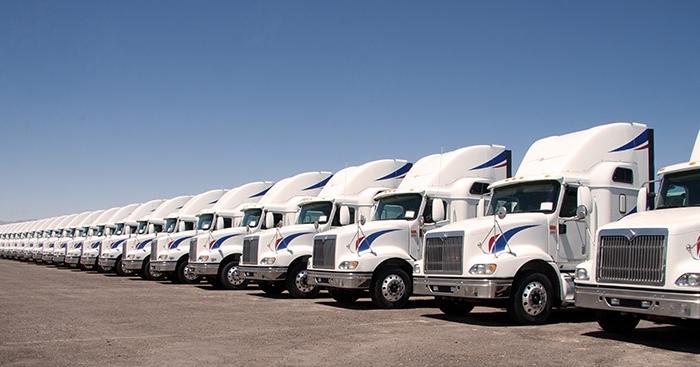Are you curious to know what is a bonded carrier? You have come to the right place as I am going to tell you everything about a bonded carrier in a very simple explanation. Without further discussion let’s begin to know what is a bonded carrier?
In the complex web of global trade and supply chains, the seamless movement of goods from one point to another is vital. One key player in this intricate process is the bonded carrier. Often operating behind the scenes, bonded carriers play a crucial role in ensuring the efficient, secure, and legal transportation of goods across international borders. Let’s dive into the world of bonded carriers and understand their significance in the realm of logistics.
What Is A Bonded Carrier?
A bonded carrier is a specialized transport company that is authorized to move goods that are held in bond. A bonded warehouse is a storage facility where imported goods can be stored temporarily under the supervision of customs authorities. These goods are not subject to customs duties, taxes, or other import-related fees until they are released into the domestic market. A bonded carrier is responsible for transporting these goods between bonded warehouses, ports, and other points of entry or exit.
The Role Of Bonded Carriers
Bonded carriers are an integral part of the supply chain, ensuring the smooth movement of goods in a highly regulated and secure manner. Their responsibilities include:
- Secure Transportation: Bonded carriers are responsible for transporting goods from bonded warehouses to their intended destinations or from points of entry to bonded warehouses. They ensure that the goods are transported securely and that there is no risk of tampering or theft during transit.
- Compliance with Regulations: When moving goods between bonded warehouses or across borders, it’s essential to comply with customs regulations and documentation requirements. Bonded carriers are well-versed in these regulations and ensure that all necessary paperwork is in order.
- Timely Deliveries: Bonded carriers play a crucial role in ensuring that goods are delivered on time. Their efficient transportation services help minimize delays in the supply chain, enabling businesses to meet customer demands and maintain inventory levels.
- Minimizing Costs: By moving goods under bond, businesses can defer customs duties and taxes until the goods are released into the domestic market. Bonded carriers facilitate this process, allowing companies to manage their cash flow more effectively.
- Risk Management: Bonded carriers are equipped to handle goods that are under customs control, which involves adhering to strict security protocols. This helps mitigate the risk of smuggling, fraud, and other illegal activities.
The Benefits Of Bonded Carriers
The services of bonded carriers offer several advantages to businesses engaged in international trade:
- Cost Efficiency: Bonded carriers help businesses save money by deferring customs duties and taxes until the goods are ready for domestic consumption or sale.
- Flexibility: Bonded carriers provide flexibility in managing inventory. Businesses can hold goods in bonded warehouses until market demand is optimal, helping prevent overstocking and waste.
- Reduced Lead Times: Efficient transportation by bonded carriers helps reduce lead times, ensuring that goods reach their destination promptly.
- Risk Mitigation: Bonded carriers contribute to risk mitigation by complying with customs regulations, securing shipments, and adhering to legal requirements.
Conclusion
In the intricate world of logistics and global trade, bonded carriers play a vital role in ensuring the efficient movement of goods under customs control. By facilitating secure transportation, compliance with regulations, and cost-efficient strategies, bonded carriers contribute to the smooth functioning of supply chains and the successful execution of international trade. Their expertise and services ensure that businesses can navigate the complexities of bonded goods with confidence, allowing them to focus on growth and delivering value to customers.
Get more information about cast on Starcasto.
FAQ
What Is The Difference Between Bonded And Non Bonded Carrier?
A regular carrier without a bond must release the shipment in the receiving point, which can be the frontier, while the bonded carrier can move the freight to an installation away from the frontier where it will receive the customs release and can be carried through the U.S. territory.
What Is An Example Of A Bonded Shipment?
An FTL shipment that is transported by land in a reefer from Laredo to an international airport within the United States, such as Houston, to be transported by plane to Europe. Example 3. A Dry Van that leaves Laredo and is transported by land to a seaport in Miami, to be sent by sea to Europe.
What Is A Custom Bonded Carrier?
Customs bonded carriers are licensed transporters approved to move freight through U.S. or Canadian ports of entry without paying duty or customs release during border crossing.
What Is Bonded Trucking Service?
What is bonded transport? Bonded transports are vehicles that are licensed to carry goods that are not yet paid through customs. It is only through bonded transport the goods are allowed to be moved, else it would be left with the customs.
I Have Covered All The Following Queries And Topics In The Above Article
What Is A Us Bonded Carrier
What Is The Name Of A Popular Bonded Carrier Company
What Is A Bonded Carrier?
What Is A Bonded Carrier
What does it mean to be a bonded carrier?
